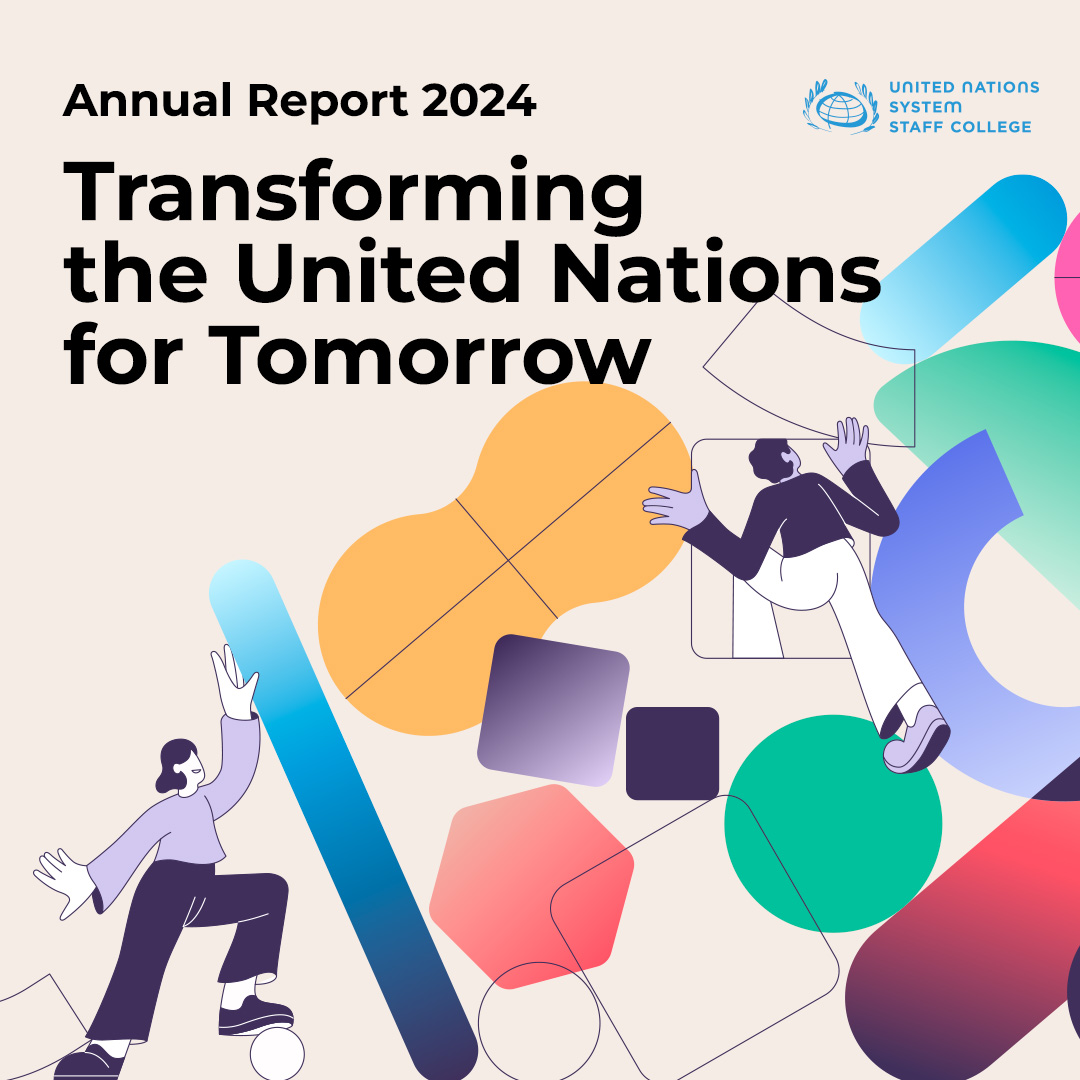


Data transparency is essential for the Paris Agreement, the legally binding accord on climate change. It encompasses accurate measurement, accessible reporting, and expert review of each country’s progress in meeting its national climate goals and pledges. To uphold transparency commitments, countries must track and report their greenhouse gas emissions and monitor their progress towards both climate mitigation and adaptation targets. In this context, competencies in data transparency play a critical role.
In partnership with the Initiative for Climate Action Transparency (ICAT), United Nations Framework Convention on Climate Change (UNFCCC), and United Nations Environment Programme (UNEP), in 2024 UNSSC launched a learning programme to build national capacity in climate action transparency in order to support both national climate ambitions and international commitments. It equipped officials with skills in data tracking and reporting that are essential for evidence-based climate policy. By the end of 2024, over 300 officials from more than 100 countries had been trained, enhancing their capacity to implement and report on domestic and international climate goals.

Chief Technical Officer, Policy & Planning Division, Department of Sustainable Development, Government of Saint Lucia
“Saint Lucia is about to prepare its first Biennial Transparency Report, making the topics covered in the programme highly insightful, appropriate and applicable. The workshop sessions provided valuable insights on how to effectively communicate and persuade our data suppliers on the urgency of the data we need, as well as establish data-sharing agreements.”
The Secretary-General's Data Strategy emphasizes "data action that adds immediate value" to the United Nations’ mission and to sustainable development. Data fosters evidence-based decision-making, enabling the United Nations to track progress, identify gaps, and optimize resources for improved programme efficiency.
To support data-driven progress, the UN Data Analytics Professional Certificate was created to equip personnel with vital data skills. This blended programme covers descriptive and predictive analytics relevant to the UN context, including topics like data preparation, visualization, and predictive modelling. It features self-paced lessons, webinars, UN case studies and on-the-job guided practice to ensure effective learning and application.
In 2024, 207 participants from 65 UN organizations across 58 duty stations completed the training; over 80 per cent of them indicated that they were equipped to apply their knowledge in the short term. Participants with backgrounds ranging from administrative roles to data analysis found the course highly relevant to their work.


Senior Advisor, Enterprise Risk Management, Office of Internal Audit to the Office of the Director of Administration, Pan American Health Organization (PAHO/WHO)
“The learning experience with UNSSC has been transformative, with several memorable aspects. The interactive and collaborative nature of the course, the inclusion of real-world case studies and practical exercises were major highlights. The hands-on activities enabled me to apply theoretical knowledge to concrete situations.”
The Integrated Data Analytics for Sustaining Peace Boot Camp strengthens the United Nations' data-driven decision-making capacity in peace and security. UNSSC developed an online five-week course and a three- to four-day face-to-face course, focusing on improving data literacy, accessibility, transparency, and protection within UN operations. UNSSC also offers an intermediate-level course on Integrated Data Analytics for Conflict Prevention that teaches advanced data collection methodologies and data visualization.
These courses enabled participants to effectively utilize digital tools to gather data both offline (e.g., in communities) and online (e.g., through social media). As new technological advancements, especially Artificial Intelligence (AI), continue to influence peacebuilding and conflict resolution worldwide, these courses introduced various ways to leverage AI in data collection, analysis, and visualization.
Participants engaged with real-world peacebuilding issues, enabling them to develop and propose solutions while also addressing the ethical dilemmas surrounding the handling of sensitive datasets and information. This empowered them to better understand past trends, anticipate future risks, and present their findings through compelling storytelling techniques, supporting the UN’s decision-making ability.

Chief of Staff, Office of the Special Envoy of the Secretary- General for Yemen
“The data analytics course was tailored to meet the needs of the mission to enhance its planning and situational analysis in a changing environment. The course supported us to align our strategic analysis with the United Nations’ Quintet of Change capability focused on data. This has resulted in an emphasis on innovative ways to bring forward the mandate of the mission.”